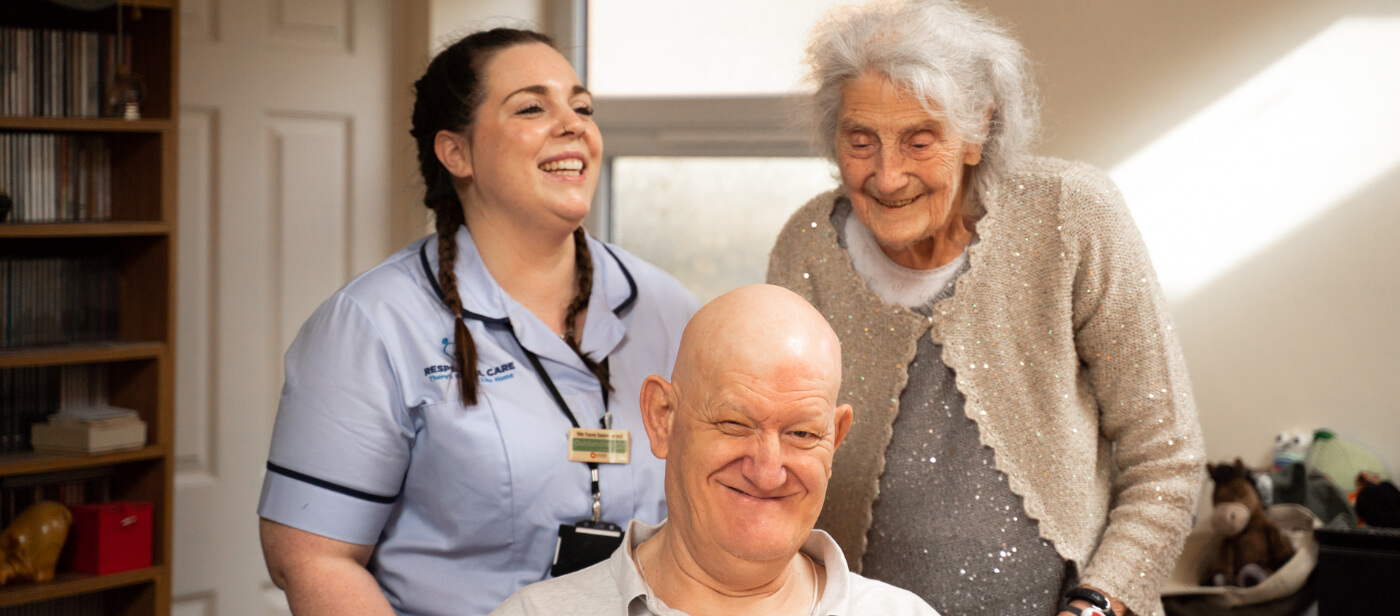Alzheimer's Communication Guide
Respectful Care
Posted 22nd September 2021
Tips for communicating with a person with Alzheimer’s Disease and other dementia related conditions.
World Alzheimer's Month is an international campaign from Alzheimer's Disease International that takes place every September. An annual opportunity for people to come together to raise awareness and to challenge the stigma that persists around dementia, September 2021 marks the 10th year of this global awareness-raising campaign.
At Respectful Care, we look after over 500 people, more than 60 per cent of which are in the early, middle or late stages of Alzheimer's. We've seen first-hand how unsettling an Alzheimer's diagnosis can be for the individual diagnosed and also for their loved ones.
We've also seen how integral communication is to living well after a diagnosis. It helps people with Alzheimer's keep a sense of self, sustain relationships and maintain their quality of life. Therefore, keeping good communication is pivotal. Although this will become more challenging as Alzheimer's progresses, there are still many ways to communicate meaningfully together.
We hope that our communication guide will help provide comfort and reassurance to those who may find themselves in this situation. For those who need any additional support, we would welcome any direct enquiries.

First and foremost, interacting with a person with Alzheimer's requires patience, understanding and excellent listening skills. Those living with dementia need to feel valued and supported as they undergo significant life changes. Loved ones can achieve this by remaining calm at all times, despite any frustrations that may arise. Listening to individuals with Alzheimer’s can be additionally accompanied by small physical gestures, such as patting, holding, or lightly stroking the person's hand while talking to them. This helps to reassure them and can bring a source of physical intimacy and comfort. However, it is vital to recognise that not everyone may be comfortable with this, so please monitor their body language and see how they respond to this action.
In the earlier stages of diagnosis, an individual can still engage in meaningful conversation and undertake social activities. It is worth noting that loved ones and caregivers should not make assumptions about the communication competencies of a person with Alzheimer’s, acknowledging that the disease affects people differently and therefore abilities will vary. Consequently, those with Alzheimer’s mustn’t be excluded from conversations. Their opinions, thoughts and assertions should be sought, heard and responded to. During conversations, those with Alzheimer's should be addressed directly rather than through a companion or caregiver. Again, if the latter occurs, this can evoke feelings of isolation, which should be avoided at all costs.
In the earlier stages of Alzheimer’s, individuals may take some time to respond when participating in a conversation. They should receive all the time they need to reply, and they should never be interrupted unless help is actively requested.
Since the level of support required can differ from person to person and in each stage of Alzheimer's, it is encouraged that loved ones ask what the person is still comfortable doing and what support is required.
The level of support provided may need to increase as the person progresses to the middle stage of Alzheimer’s, which is alternatively referred to as moderate Alzheimer’s. With the disease advancing, the person will experience increased difficulty communicating, necessitating more direct care and increased assistance.
Whereas previously, individuals in the earlier stage of Alzheimer’s can typically maintain and engage in group conversations, this changes slightly when progression into moderate Alzheimer’s occurs. Instead, it is better to engage the person in one-to-one, direct conversation with limited noise distractions. It is advisable to speak clearly and slowly, using short sentences, whilst maintaining direct eye contact to actively demonstrate that you are listening and care about what the person has to say.
In addition, it is important to acknowledge that at this stage in diagnosis, the person should not be inundated with questions. Ask them one question at a time, enunciating the words slowly and clearly. Close-ended questions which require a ‘yes’ or ‘no’ answer are encouraged, such as: ‘Would you like salmon for dinner?’ as opposed to ‘What would you like for dinner tonight?’ The same principle should be applied to tasks, which should be presented to an individual with Alzheimer’s clearly and concisely. Step-by-step instructions would be beneficial, as long-winded, lengthy requests can be too overwhelming for the person with Alzheimer’s to absorb.
When Alzheimer’s progresses into the late stage, the person may rely more upon non-verbal cues such as facial expressions or vocal sounds. For first-time interactions, you should approach the person from the front to avoid startling them. If verbal communication cannot be achieved, non-verbal communication can work as an alternative. For example, if there are uncertainties regarding what the person is trying to convey, ask them to point or gesture to aid successful communication.
Furthermore, in the latter stages, sensory stimulation can be used to assist with communication.
Sensory stimulation is the use of one or more senses, such as smell, sight, taste, hearing and touch. There are many options to explore with this particular approach, including music, poetry, natural sounds, light therapy and basic oils.
Appealing to the senses of a person with Alzheimer’s can significantly boost communication whilst providing mood enhancement, improved cognitive function and alertness.
It is important to recognise that in some cases, verbal communication will not be possible. When words are unable to be expressed, consider the feelings behind the words or sounds. Often, it is more important to focus on the emotion behind the communication effort as opposed to the words being articulated.
Throughout all three stages, the person living with Alzheimer’s must be treated with dignity, respect and care. Always make the effort to communicate with them directly and remember that it is okay if you are not sure what exactly to say - just being there for them is enough.
If you need any further support and would like to book a call with one of the Respectful Care team. Rest assured, all our care staff are ‘Dementia Friends’ and are here to help using their trained knowledge, empathy and a core understanding of the condition.
To further support clients living with Dementia, we offer Dementia Friends Training to their loved ones and significant others to give a deeper understanding and support network. This is delivered by the company trainer, making it personable, in a comfortable environment.




















